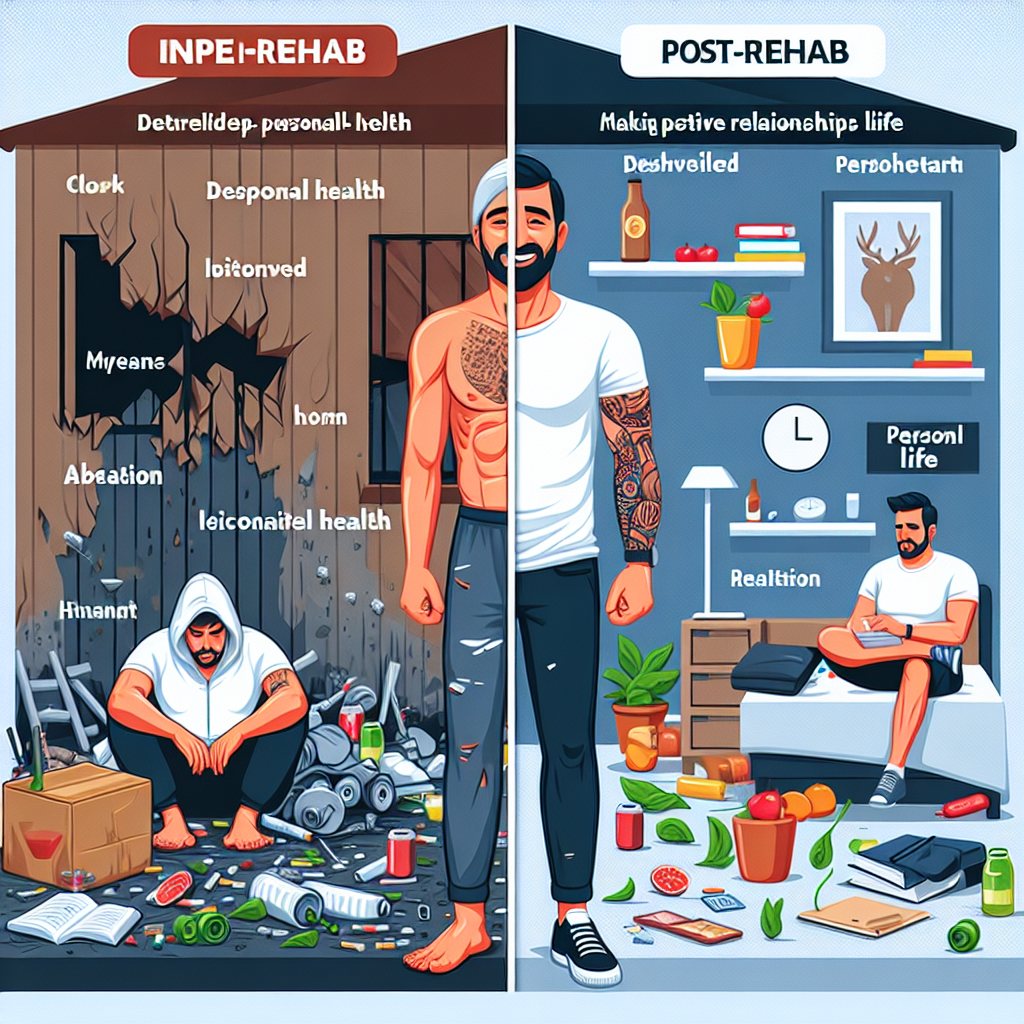-
Table of Contents
“Reclaim Your Life: Effective, Flexible, and Supportive Outpatient Cocaine Rehab”
Introduction
Outpatient cocaine rehab offers a flexible and effective approach to addiction treatment, allowing individuals to receive the necessary care while maintaining their daily responsibilities. This form of rehabilitation provides numerous benefits, including personalized treatment plans, access to professional support, and the ability to integrate recovery strategies into everyday life. By participating in outpatient programs, individuals can continue working, attending school, or fulfilling family obligations, all while receiving comprehensive therapy and support. This balance between treatment and daily life can enhance motivation, reduce stigma, and promote long-term recovery, making outpatient cocaine rehab a valuable option for those seeking to overcome addiction.
Enhanced Flexibility and Continuity of Care in Outpatient Cocaine Rehab
Outpatient cocaine rehab offers a unique blend of flexibility and continuity of care, making it an increasingly popular choice for individuals seeking to overcome addiction. Unlike inpatient programs, which require patients to reside at the treatment facility, outpatient rehab allows individuals to maintain their daily routines while receiving the support and treatment they need. This flexibility is particularly beneficial for those who have work, family, or educational commitments that they cannot abandon. By integrating treatment into their everyday lives, patients can apply the skills and strategies they learn in real-time, fostering a more seamless transition to a drug-free lifestyle.
One of the most significant advantages of outpatient cocaine rehab is the ability to maintain a sense of normalcy. Patients can continue to live at home, surrounded by their support network of family and friends. This environment can be incredibly conducive to recovery, as it provides a sense of stability and comfort. Moreover, being in a familiar setting allows individuals to practice coping mechanisms and relapse prevention strategies in the context of their daily lives. This real-world application can be instrumental in building resilience and ensuring long-term success.
Continuity of care is another critical aspect of outpatient cocaine rehab. Patients have the opportunity to engage in ongoing therapy and support groups, which are essential components of the recovery process. Regular therapy sessions, whether individual or group-based, provide a platform for patients to explore the underlying causes of their addiction, develop healthier coping strategies, and receive continuous encouragement and guidance from professionals and peers. This ongoing support is crucial in helping individuals stay committed to their recovery journey and navigate the challenges that may arise along the way.
Furthermore, outpatient programs often incorporate a holistic approach to treatment, addressing not only the addiction itself but also the physical, emotional, and psychological aspects of recovery. This comprehensive care can include a combination of medical treatment, counseling, behavioral therapy, and alternative therapies such as yoga, meditation, and nutritional counseling. By addressing the multifaceted nature of addiction, outpatient rehab programs can help individuals achieve a more balanced and sustainable recovery.
Another noteworthy benefit of outpatient cocaine rehab is the opportunity for patients to build a strong support network within their community. Support groups and peer-led meetings are integral components of many outpatient programs, providing a space for individuals to share their experiences, challenges, and triumphs with others who understand their journey. These connections can be incredibly empowering, fostering a sense of camaraderie and mutual support that can be invaluable during the recovery process.
Additionally, outpatient rehab can be more cost-effective than inpatient treatment, making it a more accessible option for many individuals. The ability to continue working or attending school while receiving treatment can also alleviate some of the financial burdens associated with addiction recovery. This financial feasibility can reduce stress and allow individuals to focus more fully on their recovery.
In conclusion, the enhanced flexibility and continuity of care offered by outpatient cocaine rehab make it a compelling option for those seeking to overcome addiction. By allowing individuals to maintain their daily routines, providing ongoing support and therapy, and addressing the holistic needs of patients, outpatient programs can facilitate a more integrated and sustainable recovery process. The ability to build a strong support network within the community further enhances the effectiveness of these programs, empowering individuals to reclaim their lives and achieve lasting sobriety.
Cost-Effectiveness and Community Support in Outpatient Cocaine Rehab
Outpatient cocaine rehab offers a multitude of benefits, particularly in terms of cost-effectiveness and community support, which can significantly enhance the recovery journey. For many individuals struggling with cocaine addiction, the financial burden of treatment can be a major deterrent. Inpatient rehab programs, while highly effective, often come with a hefty price tag due to the costs associated with accommodation, meals, and round-the-clock care. In contrast, outpatient rehab provides a more affordable alternative, allowing individuals to receive the necessary treatment without the added expense of residential services. This cost-effectiveness makes outpatient rehab accessible to a broader range of people, ensuring that financial constraints do not become a barrier to receiving help.
Moreover, outpatient rehab allows individuals to maintain their daily routines and responsibilities, which can be crucial for those who cannot afford to take extended time off work or away from family obligations. This flexibility not only reduces the financial strain but also helps individuals integrate their recovery into their everyday lives. By continuing to work, attend school, or care for their families, individuals in outpatient rehab can apply the coping strategies and skills they learn in real-time, fostering a sense of normalcy and stability that can be incredibly empowering.
In addition to the financial advantages, outpatient cocaine rehab offers a unique opportunity for community support, which is a vital component of the recovery process. Being part of a supportive community can provide individuals with a sense of belonging and understanding that is often missing in their lives. Outpatient programs typically include group therapy sessions, where individuals can share their experiences, challenges, and successes with others who are on a similar journey. This peer support can be incredibly motivating and reassuring, as it helps individuals realize that they are not alone in their struggles.
Furthermore, outpatient rehab often involves family therapy sessions, which can be instrumental in rebuilding and strengthening relationships that may have been strained by addiction. Engaging family members in the recovery process not only provides additional support for the individual but also helps educate loved ones about addiction and recovery. This collective understanding can create a more supportive home environment, which is essential for long-term success.
Another significant benefit of outpatient rehab is the ability to build a local support network. Unlike inpatient programs, which may require individuals to travel far from home, outpatient rehab allows individuals to connect with local resources and support groups. This local network can be invaluable once formal treatment ends, as it provides ongoing support and accountability. Knowing that there are people nearby who understand their journey and can offer encouragement can make a substantial difference in maintaining sobriety.
Additionally, outpatient rehab programs often emphasize the importance of aftercare planning, which includes strategies for preventing relapse and maintaining a healthy lifestyle. By staying connected to the community and continuing to participate in support groups or counseling sessions, individuals can reinforce their commitment to recovery and navigate the challenges that may arise post-treatment.
In conclusion, the cost-effectiveness and community support inherent in outpatient cocaine rehab make it a highly beneficial option for many individuals seeking recovery. By offering affordable treatment, flexibility, and a strong support network, outpatient rehab empowers individuals to overcome addiction and build a fulfilling, sober life. The journey to recovery is undoubtedly challenging, but with the right resources and support, it is entirely achievable.
Q&A
1. **Question:** What is one major benefit of outpatient cocaine rehab compared to inpatient treatment?
**Answer:** One major benefit of outpatient cocaine rehab is the ability for patients to maintain their daily responsibilities, such as work, school, and family commitments, while receiving treatment.
2. **Question:** How does outpatient cocaine rehab support long-term recovery?
**Answer:** Outpatient cocaine rehab supports long-term recovery by providing continuous support and resources, such as counseling and support groups, which help individuals integrate coping strategies into their everyday lives and reduce the risk of relapse.
Conclusion
Outpatient cocaine rehab offers numerous benefits, including flexibility in scheduling, allowing individuals to maintain work and family responsibilities while receiving treatment. It provides access to support networks and resources within the community, fostering a sense of normalcy and continuity in daily life. Outpatient programs are often more cost-effective than inpatient options, making them accessible to a broader range of individuals. Additionally, these programs can offer personalized treatment plans and ongoing support, which are crucial for long-term recovery and relapse prevention. Overall, outpatient cocaine rehab can be an effective and practical solution for those seeking to overcome addiction while maintaining their everyday commitments.



